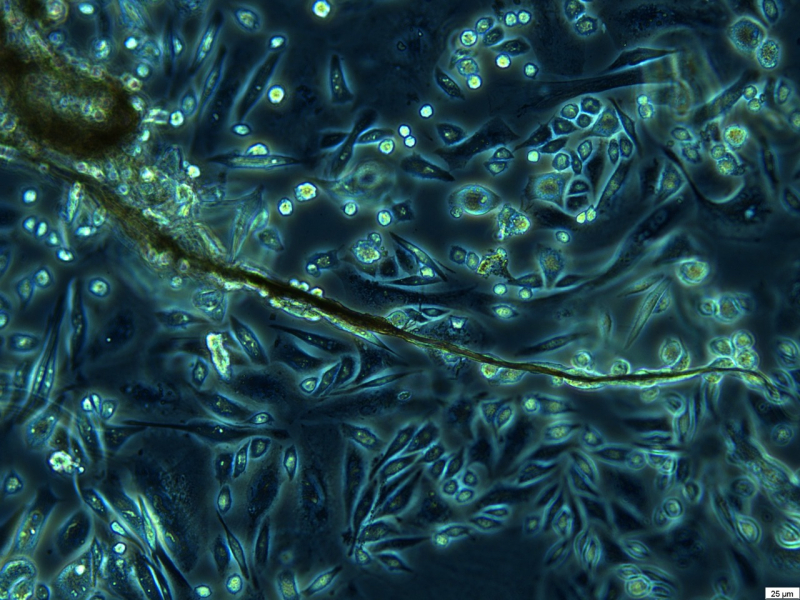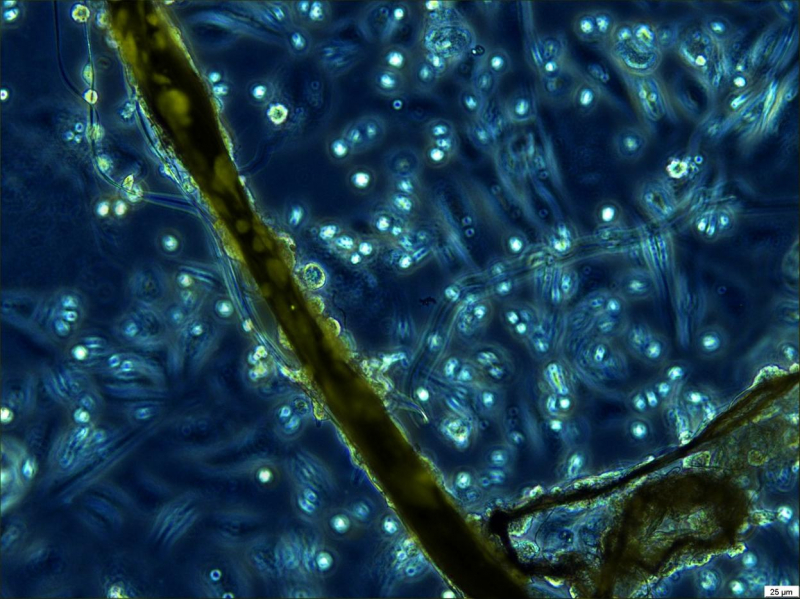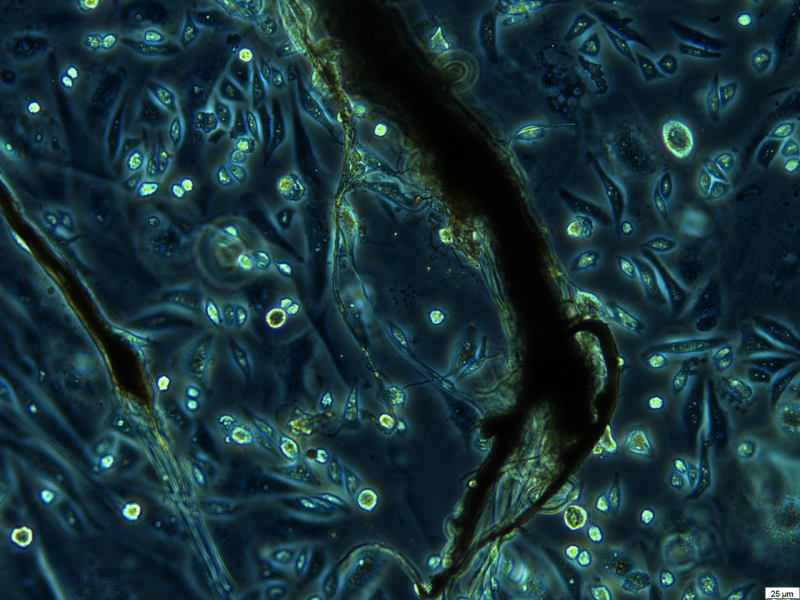The image was taken during an experiment devised to test the use of spider silk in the creation of biocompatible materials – a promising medium for targeted drug delivery and nerve tissue regeneration.

Photo courtesy of Anastasiya Kryuchkova and Artemii Savin
The picture, somewhat reminiscent of the works of Van Gogh, shows human neuroblastoma cells (IMR-32) on fibers of spider silk. The material is soaked with ferromagnetic particles (about 70 nm in diameter) obtained as a result of hydrothermal synthesis.
Cells taken from neuroblastomas, or, in other words, malignant tumors consisting of mutated nerve cells, are used to test the biocompatibility of materials with cells of the human brain.
When exposed to an alternating magnetic field, ferromagnetic nanoparticles heat up and trigger local drug release. Hybrid materials based on spider silk and ferromagnetic nanoparticles demonstrate adhesive properties in relation to neuroblastoma cells. Basically, this material can be potentially used to stimulate the growth and regeneration of neurons and thus the restoration of nerve tissues; for example, after a stroke or severe damage to nerve endings.

Photo courtesy of Anastasiya Kryuchkova and Artemii Savin
Thus, this biocompatible and biodegradable hybrid material is a step towards an optimized multifunctional system for various biomedical applications, such as targeted drug delivery and nerve tissue regeneration.
The experiment was carried out by ITMO Master’s students Anastasiya Kryuchkova and Artemii Savin as part of a joint project (Ceramic and Natural Nanomaterials and Experimental Oncology and Immunology groups)
The image was taken with a Leica DMi8 fluorescence microscope in phase contrast with an x20 objective.
